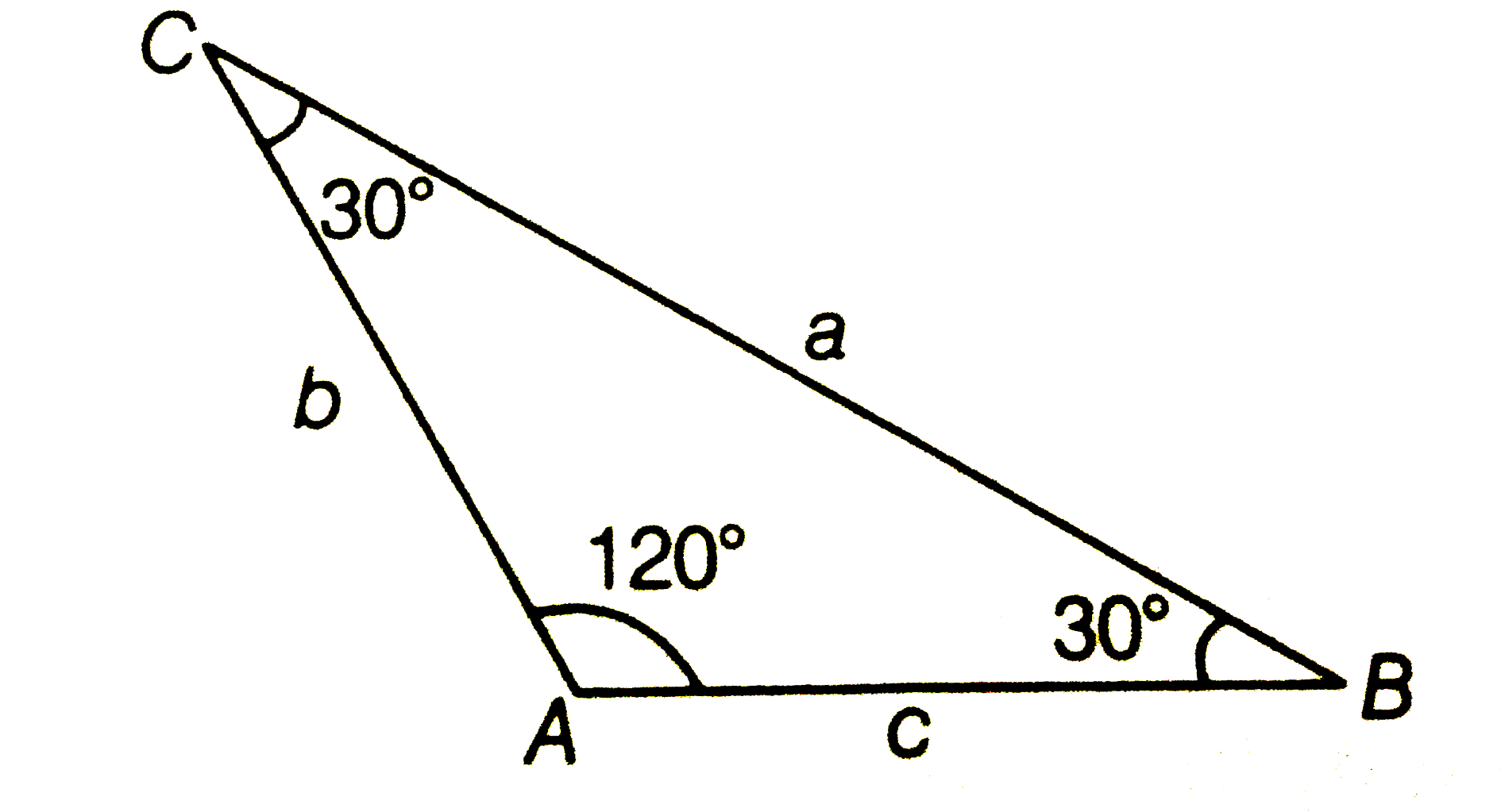If the angles of a triangle are in the ratio 4:1:1, then the ratio of the longest side to the perimeter is √3:(2+√3) (b) 1:6 1:2+√3 (d) 2:3
√3:(2+√3)
1:6
1:(2+√3)
2:3
The correct Answer is:A
Here , ratio of angles are 4:1:1.
⇒4x+x+x=180∘
⇒x=30∘
∴∠A=120∘,∠B=∠C=30∘

Thus ,the ratio of longest side to the perimeter =aa+b+c Let b = c =x
∴a2=b2+c2−2bccosA
⇒a2=2x2−2x2cosA=2x2(1−cosA)
⇒a2=4x2sin2A2
⇒a=2xsinA2
⇒a=2xsin60∘=√3x
Thus ,required ratio is
aa+b+c=√3xx+x+√3x=√32+√3
Similar Questions
If the angles of a triangle are in the ratio 4:1:1, then the ratio of the longest side to the perimeter is √3:(2+√3) (b) 1:6 1:2+√3 (d) 2:3
View SolutionIf the angles of a triangle are in the ratio 4:1:1, then the ratio of the longest side to the perimeter is- √3:(2+√3) b. 1:√3 c. 1:2+√3 d. 2:3
View Solution
Knowledge Check
The angles of a triangle are in the ratio 4:1:1. Then the ratio of the largest side to the perimeter is
A√3:(2+√3)B1:6C1:2+√3D2:3If the angles of the triangle are in the ratio 4:1:1 , then the ratio of the longest side to the perimeter is
A√3:(2+√3)B1:6C1:2+√3D2:3If the angles of a triangle are in the ratio 4:1:1, then the ratio of the longest side to the perimeter is
A2√3−3B2√3+3C3√2+3D3√2+2
The angless of a triangle are in the proportion 7:2:1, prove that the ratio of the least side to the greatest is 3−√5:2.
View SolutionIf the angles of a triangle are in the ratio 7:2:1, then prove that the ratio of smallest side to the largest side is √5−1:√5+1.
View SolutionThe angles of a triangle are in the ratio, 1:2:7. Prove that the ratio of the longest and smallest side is (√5+1):(√5−1).
View SolutionThe angles of a triangle are in the ratio 1:2:3 , then the sides of a triangle are in the ratio
View SolutionIf the sides of a triangle are in the ratio 1 : √3 : 2, then the angles of the triangle are in the ratio
View Solution
